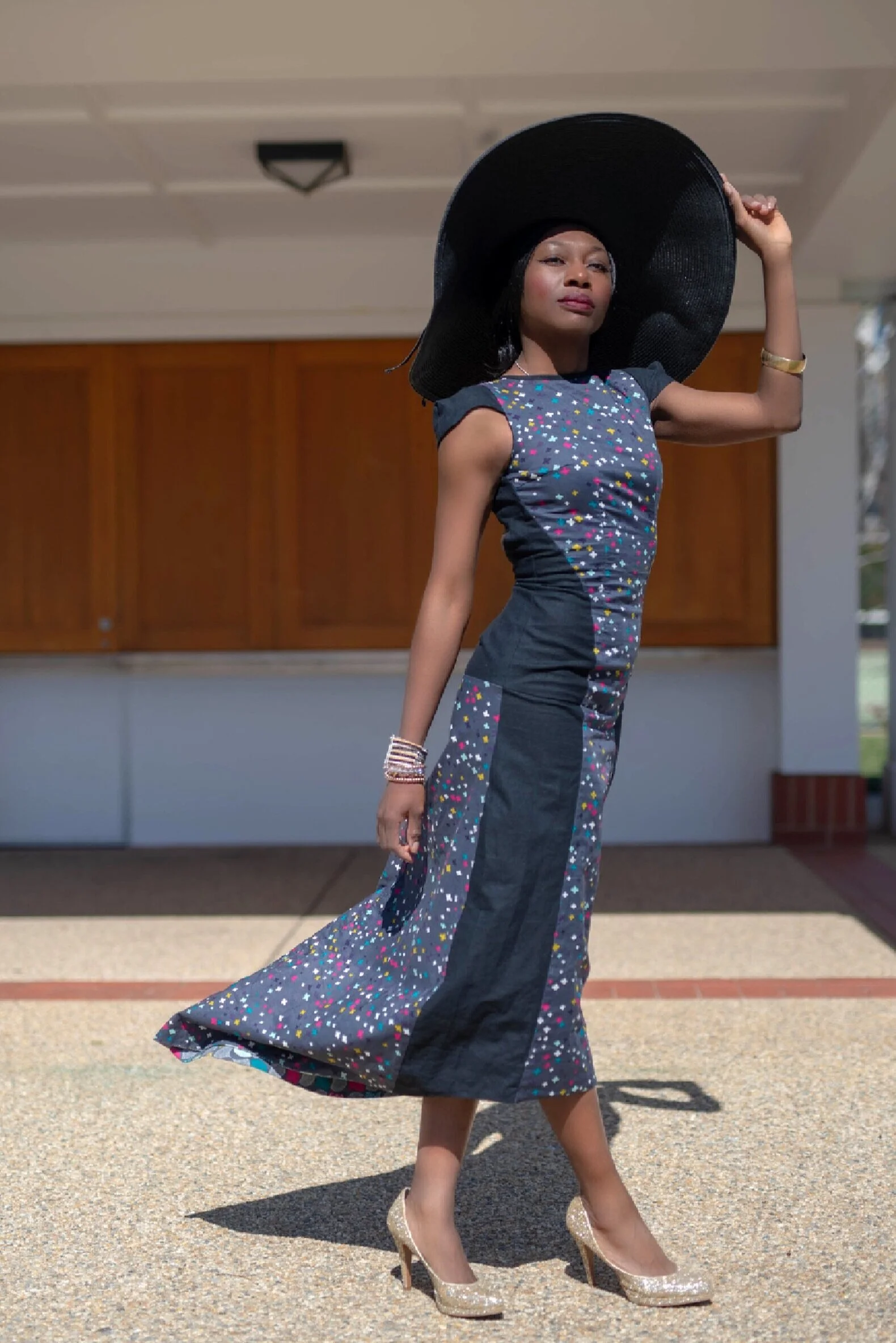Rana dress made by ethical label, Pure Pod. Australian-made with organic cotton and linen.
Now more than ever is the moment we can create a paradigm shift by putting our (collective) weight behind brands that have always operated with unwavering determination to treat workers with dignity and respect. Brands that operate with absolute consideration for how their manufacturing processes and lifecycle of their products impact the environment. This is not an easy feat, especially for small businesses. For these reasons, they deserve our utmost respect and patronage. To systemise ethical and sustainable businesses so that the standard for how we produce, consume and dispose clothing and textiles becomes the new normal, the mainstream.
Rana Plaza disaster in Dhaka District, Bangladesh on April 24, 2013. Stock image.
Fashion Revolution
April 20th – April 26th, 2020 marks this year’s Fashion Revolution week. On April 24th, 2013, Rana Plaza, a building in Bangladesh with a clothing manufacture factory collapsed and killed 1134 people and injured 2,500 people. This was the disaster that ignited the global Fashion Revolution movement. Its mission is to protect people and planet by taking a stance against social injustice and environmental damage done in the name of fashion. One of their most popular campaign hashtags on social media is #WhoMadeMyClothes. The aim is to incite apparel users all over the world to ask the brands who make their clothes for full transparency of their entire manufacture supply chain. This will ensure traceability and therefore influence liveable fair wages, healthier work conditions and better practices for the environment.
Time for change
This week in 2020 can be the year we fully revolutionise our global fashion culture. Here are some thoughts that will inspire you to join the movement towards making ethical and sustainable fashion the new normal:
1. Too expensive – there’s a myth that ethically-made clothes are too expensive. This is false. They often cost exactly what clothes are meant to cost. Fast fashion has given us the wrong idea that clothes can be cheap and disposable. The next time you want to purchase a t-shirt for $10, or a dress for $20, you best believe that the people that made that garment were paid next to nothing for their hard work. Paying a decent amount to an ethical brand means the people who make the garments are paid liveable wages. This is how we can help to flatten the global poverty curve.
2. Driving down costs – When enough people and policies support ethical manufacturing, it will drive down production costs in a way that still upholds the values of environment, liveable wages and good work conditions because it will become the norm, not the exception.
3. Variety, inclusion & diversity – The more we use our dollars to stand behind ethical brands, the easier it will become for labels to have size variety, more inclusion and diversity in the fashion industry.
How to Take Action
These organisations exist to change the status quo with actions that anyone can take to make this happen sooner and more efficiently.
• Fashion Revolution advocates for a global fashion industry that conserves and restores the environment and values people over growth and profit. Join the revolution here.
• Ethical Clothing Australia is an accreditation body that works with Australian businesses to ensure their Australian supply chains are legally compliant. Their list of ethical brands can be found here.
• Oxfam’s What She Makes campaign demands big clothing brands pay the women who make our clothes a living wage. They have several activities that you can do to ensure this happens on their site here.
Where to Shop
In addition to Pure Pod, some other ethical brands to check out are KitX, Remuse, Etiko, Humiform, Allora Capes and Stella McCartney. Here are links to specific categories:
More affordable fashion brands
STYLING
In this article I’m wearing a dress by the ethical label, Pure Pod. It is made in Australia using organic cotton and linen. I was going for an old Hollywood, vintage, glamorous look so I styled the dress with a black, wide brim hat. To enhance the Hollywood glamour look, I paired it with gold, sparkly stilettos.
Outfit sourced from:
Rana Dress – Pure Pod
Gold Stilettos – Canberra (preloved) Fashion Market
♥ Nina Gbor
Photography by Bryant Evans



